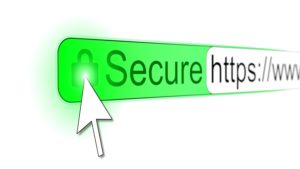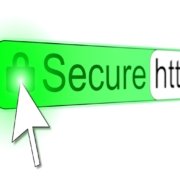 The security of the internet and the information we share on it is becoming a concern for all of us. Whilst the ransomware attack on the NHS back in May 2018 was an extreme example, any business or holiday cottage website can fall victim to hacking. There were no fewer than 5.6 million fraud and computer misuse crimes committed in the UK during 2016 alone.
The security of the internet and the information we share on it is becoming a concern for all of us. Whilst the ransomware attack on the NHS back in May 2018 was an extreme example, any business or holiday cottage website can fall victim to hacking. There were no fewer than 5.6 million fraud and computer misuse crimes committed in the UK during 2016 alone.
Having a securer internet is a cause that Google have been championing for a number of years; in 2014 they announced they were beginning to take whether or not a site was secure into their ranking algorithm. Google have continued in that vein with a view to contribute toward creating a safer internet for all users.
As this is a technical area, let’s talk through it in plain English…
How do you know if your own holiday cottage website is secure?
Look at the url bar of your web browser, you’ll see that your website starts with either:
- http://
- https://
If it is https:// you will often also see a small padlock which indicates that your website is secure. (Although this may depend on your browser).
Secure in this context means that the information you are viewing and data you enter into the site is encrypted. (An example of this is where you fill out a contact or booking form).
So the next question is if it is not already, how does the information become encrypted and the site therefore become secure?
What is an SSL Certificate and why should your holiday cottage website have one?
Short for ‘Secure Socket Layer’, an SSL Certificate is something that you as a website owner buy (usually from your website hosting provider) and then install on your site.
Its purpose is to encrypt the information passed between you and your visitor, and visa versa, therefore making this information secure and unable to be hacked or intercepted.
The cost of an SSL Certificate can vary from £20 a year up to £150, depending on the needs of your site and your website developer should be able to point you toward the most effective and appropriate for your needs.
What are the benefits?
As we’ve already mentioned, Google first began taking security into consideration within its algorithm back in 2014, and this is only going to continue to grow as a ranking signal.
Whilst it’s an over simplification to say that having an SSL certificate on your site and operating over https:// will increase your rankings on its own, it will certainly help.
With the new GDPR legislation dictating how we all handle data also coming into place in May this year, this is a good time to be diligent in how you handle data in all areas of your holiday cottage business, including your website.
Need more information on installing an SSL Certificate to make your holiday cottage website more secure?
Please talk with your hosting company and website developer who will be able to asist you.
Boshers offer specialist holiday home insurance to owners across the UK. For information on how specialist insurance can help protect your holiday home, call us on 01237 429444.

